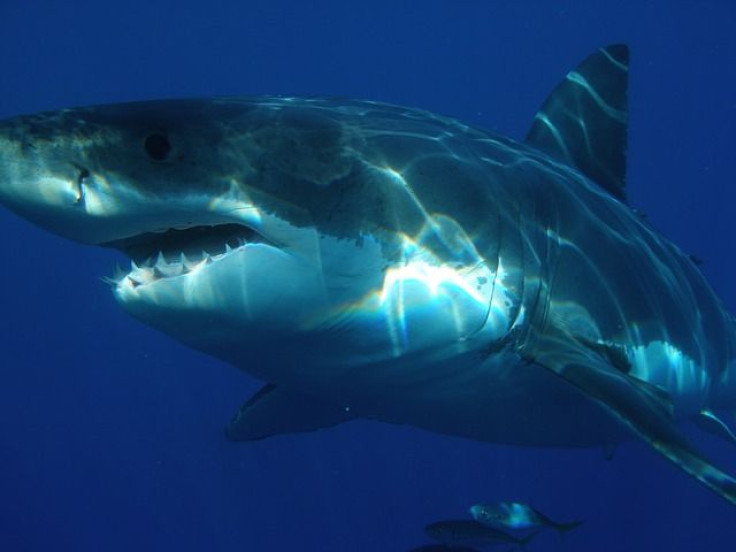Great White Shark Makes Appearance Near Bali Coast, Sends Group Of Divers Into Panic
A student, Nina Coleman, was part of a group of scuba divers exploring a reef when she started seeing her fellow divers panic.
A 5-meter great white shark started swimming toward the group, and to their horror, it was just a few feet away.
Footage taken of the incident showed the great white slowly moving through the water among the panicked divers as they flailed around.
Fortunately for the group, the shark must have been preoccupied with other things -- considering it did not attack. Because sharks usually prefer the cold waters, Coleman was surprised to have such close contact with one of them during the dive.
She claimed that great whites have never been seen in Indonesia before because they are a cold water species, and clalled it a bit strange to encounter the fearsome animal so close.
She thinks changing ocean currents could be leading to a difference in the habitation and habits of some marine animals like sharks.
But a leading expert on sharks said the group should not have been surprised to see the sharks in those waters. According to Gregory Skomal, shark presence in tropical waters has been observed in the past although they have not been seen near the Indonesian coastline before.
His statements have been supported by the past activity of great white sharks in tropical waters. In New Zealand, for example, a group of great whites was tagged by scientists for over five years.
The high tech tag recorded depth, location, and temperature of the sharks. Twenty-five sharks were tagged, but four tags came off during the research period. So the movement patterns could be determined for 19 of them. The study found that of these 18 swam toward tropical waters.

They did linger around the Tropic of Capricorn though and did not go further north into Micronesia. During their migratory patterns, the great white sharks in New Zealand experienced a range of temperatures from 3 to 27 degrees Celsius.
Generally, sharks are cold-blooded though great white sharks have specialized blood vessels, which gives them the ability to hunt both in warm and cold waters. The structure is known as a counter-current exchanger, and it allows them to increase their body temperature above that of the water around them.
It gives an advantage when they are hunting in cold water because they can self-regulate body processes, thereby moving at a fast speed regardless of the environmental conditions.
It is also advantageous when going after warm-blooded mammals that are slowed down by the cold water conditions.











